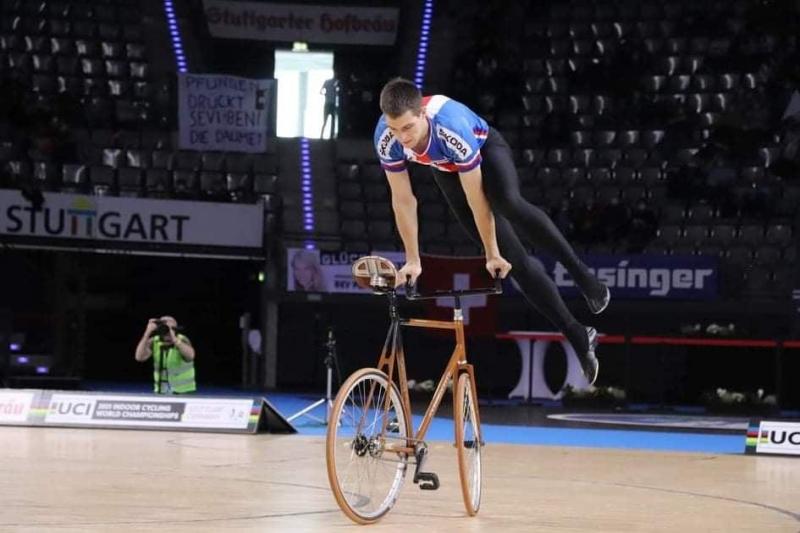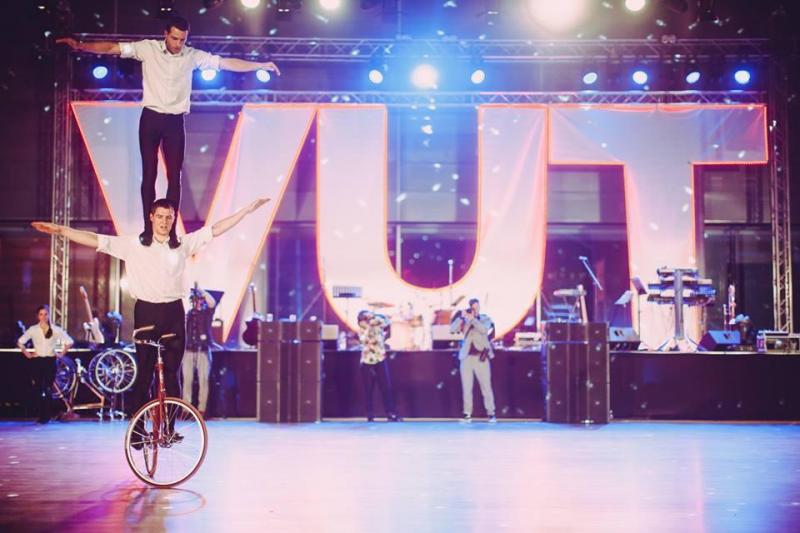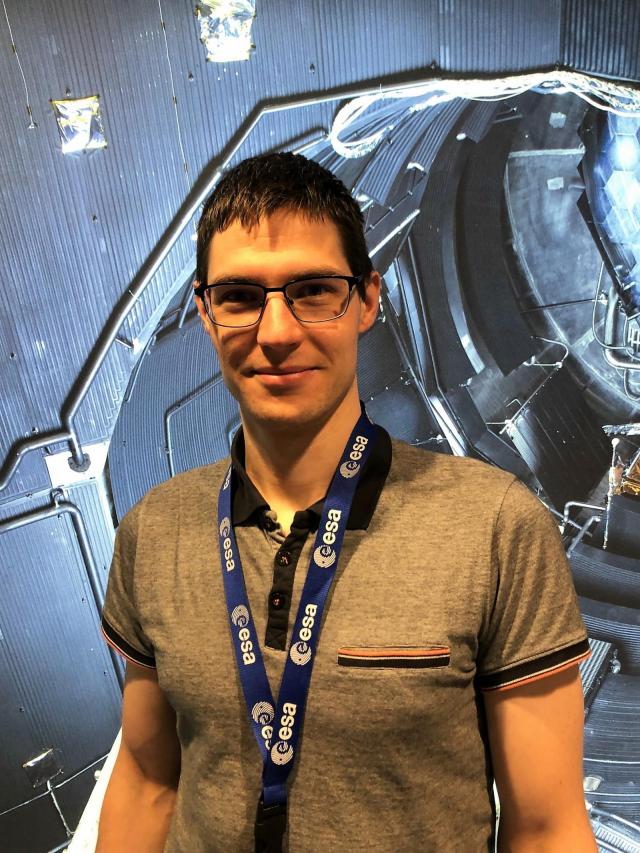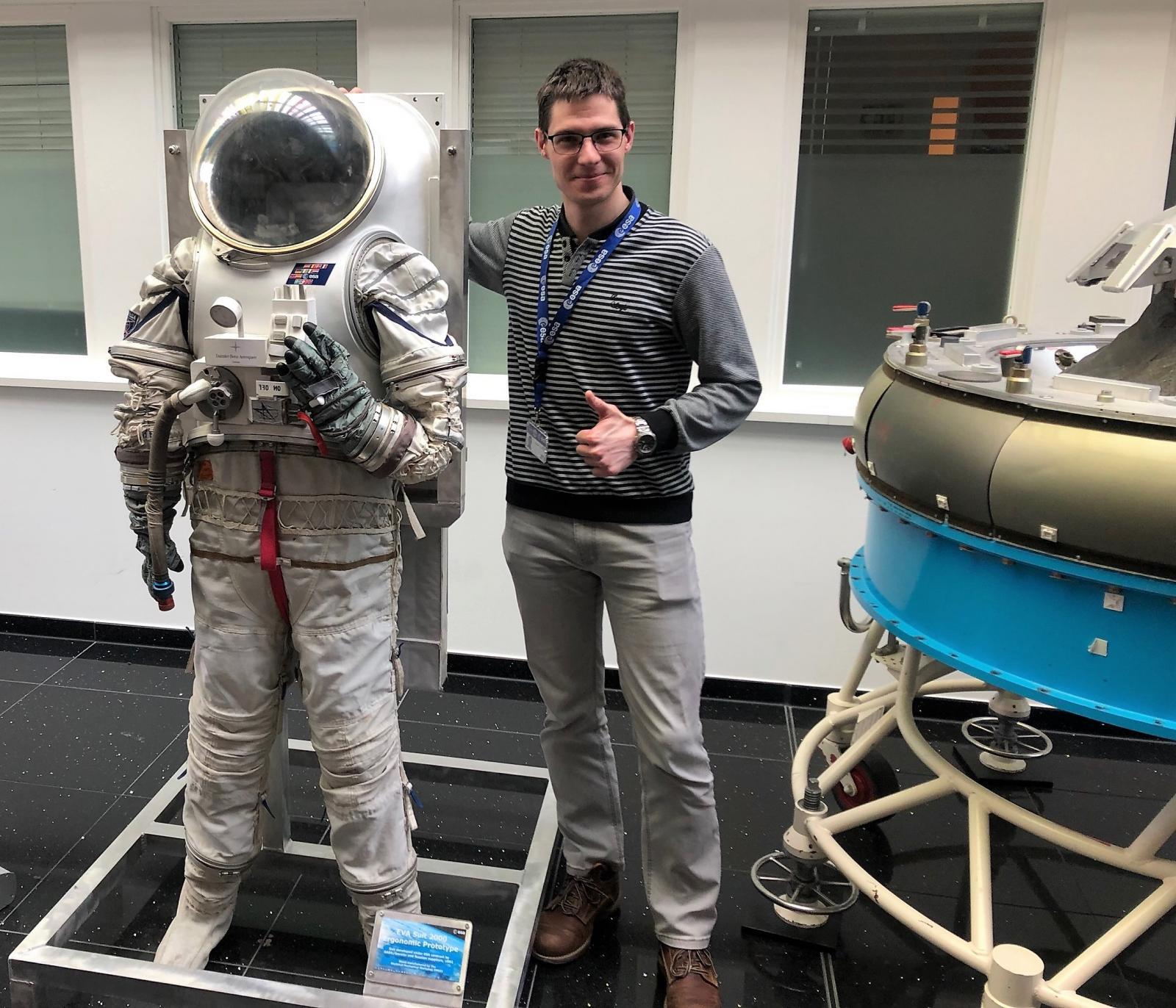Sport
The king of cycling Jakub Mašek got an internship at the European space agency

The interview with Jakub Mašek, a successful indoor cycling athlete and researcher from the FME (Faculty of Mechanical Engineering), was supposed to be mainly about sport, but it turned into a duel. When it came to the fact that he was currently on an internship at the European Space Agency (ESA), it was impossible not to ask about her. Indeed, Mašek himself says that sport and science are similar in many ways: both require endurance and perseverance.
Jakub Mašek, the king of indoor cycling, as the sports federation and journalists praised him in last year's poll, doesn't crush kilometres or ride tricky trails. He's into artistic cycling. “I would compare it to something between gymnastics and figure skating, but it is not an aesthetic performance to music. We do a five-minute routine, during which we have to complete thirty prescribed elements. According to the difficulty, each element is scored in some way, so the goal is to include difficult, high-scoring elements in the lineup. It can take a year or even two to learn such a thing, which is preceded by hundreds of futile attempts and falls,” Jakub Mašek describes the sport he has been doing since he was a child.
His parents brought him to indoor cycling, but it was more of a coincidence: this not-so-traditional sport was offered by the sokolovna in Brno's Řečkovice, where Jakub Mašek comes from. “When they put me on a bike with no brakes and no derailleur in the first training session, I left with the feeling that I never wanted to go back. And you see, I've been doing it for 24 years,” he says with a laugh. Although he adds that, like any training, the preparation for a artistic cycling event hurts.

Over the years of his sporting career, Mašek has managed to collect a number of successes. He has nine medals in total from the European Junior Championships, perhaps the highest number in history. The fact that he does both solo artistic cycling and pairs racing helps. He considers last year's two fourth places at the World Championships to be his greatest success, although the “unlucky potato” position is not crowned with a medal. “In both categories I had the opportunity to participate in the finals, which was a great experience. Only two other artistic cyclists in the world have achieved a similar result. I have to be honest and admit that I was not on the podium, but it was still a great satisfaction for those who have supported me for years. When my friend realised that I had reached the final, he was moved to tears,” recalls Mašek.
From the gym to the laboratory
Jakub Mašek manages to combine top sport and a scientific career at the Faculty of Mechanical Engineering so far. “Sport and science are similar in many ways: endurance and perseverance are needed in both. And movement is at least a compensation for the dozens of hours spent in front of the computer,” he says.
This is where all ESA technology and engineering projects across Europe are organised and all operational missions are overseen.
He has now left his sporting career behind for six months to pursue his dream: an internship at the ESA development centre. He made it there by working for many years with an agency, for which he and his colleagues at the Institute of Aeronautics are developing a thermal switch for space applications (we wrote about this topic in here). “At ESA, I am now deepening my knowledge of thermal analysis for some future space missions. It's amazing how many young, extremely intelligent people I can talk to about technical problems, and they all always make time. It's very inspiring,” Mašek praises himself.

According to him, the Czech Republic has a good reputation within ESA as a country where the development in the field is moving forward at lightning speed. “We are known for moving very quickly, and we have many successful technology companies emerging. For example, study programmes in space technology have only recently started, so not everyone who has been involved in this field has studied the subject directly. I think that if a student works hard, he or she can easily get into ESA,” Mašek concludes.
(ivu)

Smart dispatching system for virtual power plants co-developed by experts from FME BUT
I don't call the students by name, I respect them very much, says Šárka Mikmeková
Five-time world champion is preparing his bachelor thesis on motorized surfboard
I don't bring bruises home, says judoka Vít Škrkoň
Alexandra Streďanská’s fascination with fascia and hyaluronic acid